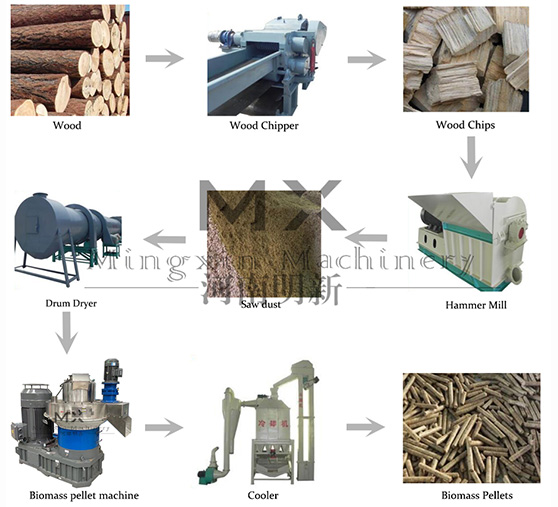
The quest for sustainable energy solutions has led to the resurgence of biomass as a viable alternative to fossil fuels. Biomass pellets, in particular, have garnered attention for their environmental and economic benefits. This article explores the multifaceted advantages of using biomass pellets as a renewable energy source.
Renewable and Abundant
Biomass pellets are made from organic materials such as wood waste, agricultural residues, and other plant-based byproducts. Unlike fossil fuels, these materials are renewable and can be replenished on a human timescale. The use of biomass pellets taps into the natural carbon cycle, where carbon dioxide released during combustion is offset by the carbon absorbed during the growth of new biomass.
Carbon-Neutral Energy
One of the most significant advantages of biomass pellets is their potential to be a carbon-neutral source of energy. When sourced sustainably, the growth of biomass can absorb as much carbon dioxide as is released when the pellets are burned for energy, creating a balanced carbon footprint.
Energy Independence
Biomass pellets can contribute to energy independence by reducing reliance on imported fossil fuels. They can be produced locally, utilizing domestic resources and creating jobs in rural areas where agricultural and forestry byproducts are abundant.
Economic Benefits
The production and use of biomass pellets can stimulate local economies. It provides a market for materials that might otherwise be considered waste, adding value to agricultural and forestry industries.

Reduced Emissions
Burning biomass pellets produces fewer harmful emissions compared to coal and other fossil fuels. They release lower levels of pollutants such as sulfur oxides, which are responsible for acid rain and respiratory problems.
Versatility and Efficiency
Biomass pellets are versatile and can be used in various heating and power generation systems. They have a high energy density, are easy to transport, store, and use, making them an efficient fuel choice for both residential and industrial applications.
Conclusion
The use of biomass pellets offers a promising path towards a more sustainable and resilient energy future. Their advantages extend beyond environmental benefits, encompassing economic and social aspects that can drive a global shift towards greener energy practices. As the world grapples with climate change and the need for renewable energy sources, biomass pellets stand out as a solution that aligns with the goals of sustainability and energy security.